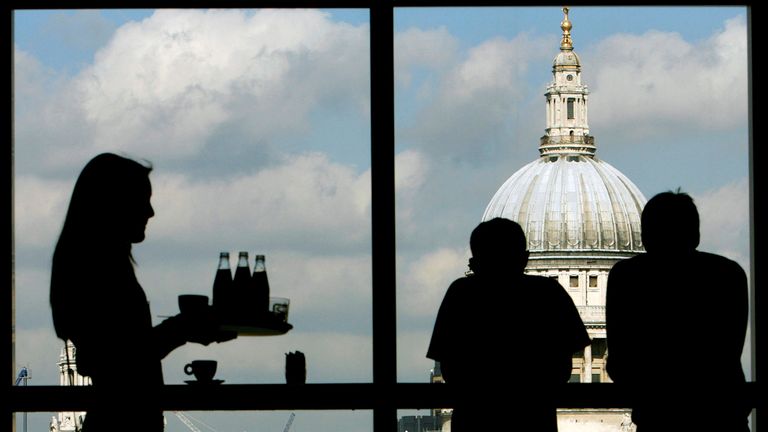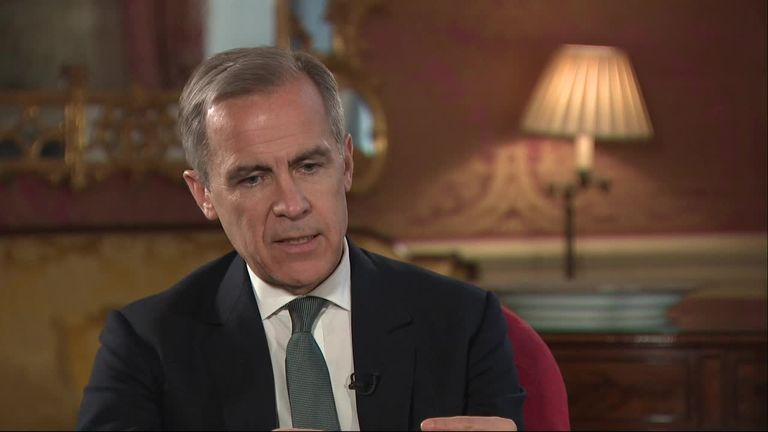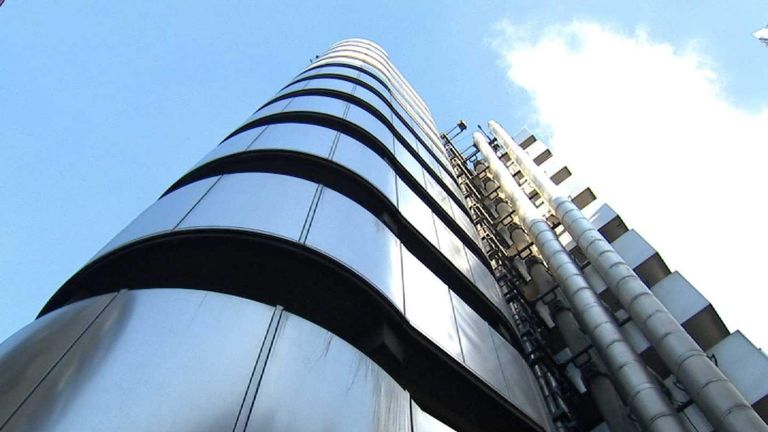Coronavirus: Services sector growth slows on weak travel demand
Disruption in the travel sector and a hit to overseas sales held back the sector - which represents 80% of UK economic output.
Wednesday 4 March 2020 18:33, UK
The coronavirus outbreak has put the brakes on growth in Britain's dominant services sector, new figures suggest.
Closely-watched monthly data showed that an upturn seen in the wake of the election had slowed in February partly due to disruption in the travel industry and an impact on sales to overseas markets.
The sprawling services sector, which ranges from restaurants and hotels to law and financial firms, represents 80% of UK economic output.
Figures from the IHS Markit/CIPS purchasing managers' index showed a reading of 53.2 for February - on a scale where anything above 50 represents growth.
That is down from 53.9 in January, suggesting that a post-election so-called "Boris bounce" for the UK in the wake of the December general election has been dragged back down to earth by the spread of the virus.
It comes as the Bank of England faces calls to follow the US Federal Reserve in cutting interest rates to cushion the economic impact of the outbreak.
America's central bank said it was responding to "evolving risks to economic activity" posed by the coronavirus though Fed chairman Jerome Powell stressed there was a limit to what it could do.
"We do recognise that a rate cut will not reduce the rate of infection, it won't fix a broken supply chain; we get that, we don't think we have all the answers," Mr Powell said.
The Fed's surprise rate cut on Tuesday failed to cheer Wall Street in the way that might have been expected - sending the Dow Jones 3% lower by the close.
However, markets in Europe responded positively on Wednesday with the FTSE 100 climbing 1.5%.
It was confirmed after the market close that Kingfisher, the owner of B&Q and Screwfix, and holiday operator TUI were to be relegated from the index from 20 March under the quarterly review of its constituent companies by market value.
TUI was among firms worst hit in the COVID-19 share price panic of last week but it had already seen its value under pressure amid tough trading and exposure to the grounding of the Boeing 737 MAX fleet.
US indices also recovered the previous day's losses on Wednesday.
The latest PMI data about the virus's economic impact on the UK services sector, added to readings from elsewhere in the economy, suggested that GDP was on course to grow by about 0.2% in the first quarter of 2020 - after stagnating at the end of last year.
But Chris Williamson, chief business economist at IHS Markit, said that whether this could be sustained in coming months was "starting to look increasingly at risk".
He said: "The outbreak was linked to reduced tourism numbers and lower travel and transport business volumes, but was also seen as having a wider hit demand via reduced confidence and financial market volatility, as well as supply shortages limiting the ability to fulfil orders.
"Uncertainty regarding the UK's trading relationship with the EU also lurks in the background as a risk to exports."
The OECD warned this week that the coronavirus posed the gravest threat to the global economy since the financial crisis.
Bank of England governor Mark Carney has said the shock to UK growth caused by the outbreak "could be large" - and outlined contingency plans for the financial sector to deal with it.
On Wednesday, insurance market Lloyd's of London said it had "emergency trading protocols" in place to ensure business continuity if access to its building is restricted due to the epidemic.
Elsewhere, travel companies continued to report a hit to business.
TUI said it had seen weaker bookings over the last week - and said that it was imposing hiring freezes and cost cutting as well as considering cutting back routes.
Ryanair said there had been a "notable drop in forward bookings" for travel towards the end of March and early April and that it will "proactively prune" its schedule from those airports where travel has been most affected by the outbreak.
Bookings platform Hostelworld said a fall in demand was likely to hit first quarter earnings by up to £3.5m.
But some businesses have benefited.
Mindful Chef, the healthy recipe box service, said sales had risen by 165%.







